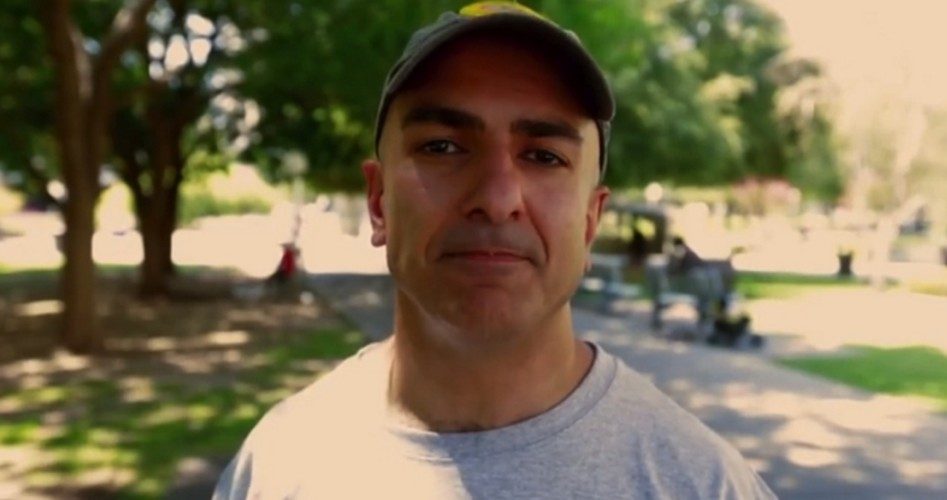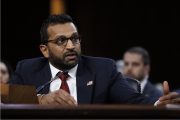
In response to a challenge posed by his Republican opponent for the governorship in November, California Governor Jerry Brown said:
A lot of people forget the mess that California was in just four years ago. There were 1 million jobs that had been lost. Our budget deficit was astronomical: 27 billion. We hadn’t had a budget on time in probably 10 years.
Brown’s challenger is Republican Neel Kashkari (shown), a practicing Hindu born of Indian parents with a background as a Bush appointee and a former executive with Goldman Sachs. While his political positions on key issues qualify him as a RINO — Republican in Name Only — he is already closing the gap on the once-invincible California governor. Since June Kashkari has moved from invisible to within 16 points of Governor Brown, probably because he has a lot to work with.
For starters, the state sports a 24-percent poverty rate, a 16.2-percent youth unemployment rate, unfunded pension liabilities in the hundreds of billions, and the loss of a string of high-profile businesses to other states. This has given Kashkari an opportunity for a little political “guerrilla warfare.” Earlier this month, he pulled up in front of the state capital in a black Tesla automobile to remind a delighted press corps of the recent decision by Tesla to build a $5 billion battery plant in Nevada instead of in California. Said Kashkari:
This just symbolizes the magnitude of his [Brown’s] utter failure. This is what it comes down to: is somebody going to fight to rebuild the middle class?
Jerry Brown doesn’t understand that there’s a problem. If Jerry Brown had been doing his job, he could have been sipping champagne with [Tesla Chairman] Elon Musk last Thursday instead of getting clobbered by me in the debate.
At the moment, Brown has the advantage. The state was in such a fiscal meltdown when he was sworn in for his third term in January 2011 that he had nowhere to go but up. Jack Pitney, political science professor at Claremont McKenna College, explained:
Brown has the advantage of working off a very low baseline. The California economy underwent really tough times during the great recession, in part because the housing bubble burst very loudly in the state.
From such a low point, any progress looks great.
Four years ago, polls showed 80 percent of Californians claiming the state was “on the wrong track” while a poll taken two weeks ago showed that number halved, at 41 percent.
Despite the governor’s popularity, favorable name recognition, and $21 million in his campaign coffers, Kashkari is forcing Brown to defend himself and his policies. Although he started off the first two years of his third term by cutting and readjusting the state’s finances to show the first budget surpluses in years, in November 2012 voters passed Brown’s tax initiative so that California’s personal income tax rate and state sales taxes are now the highest of any state in the country. When measured as a percentage of GDP, California had the fourth highest tax burden of all 50 states in 2010, reflecting personal income tax rates as high as 13.3 percent, as well as an 8.4 percent average sales tax. In addition, California property tax rates are ranked 17th highest in the nation, despite passage of Proposition 13 limiting those rates back in 1978. In addition, gasoline in California is taxed at 71.9 cents per gallon and diesel is taxed at 74.9 cents per gallon, the highest taxes in the country.
The U.S. Bureau of Economic Analysis shows that, despite Brown’s protestations to the contrary, California’s GDP grew by only 2 percent in 2013, down from 2.7 percent in 2012. In the study done by Mercatus Center, “Freedom in the 50 States,” California’s overall freedom ranking has remained essentially unchanged at 49th place since 2001. Mercatus pointed out that “California not only taxes and regulates its economy more than most other states but it also aggressively interferes in the personal lives of its citizens.” Further, both individual and business income taxes, at 10.8 percent of income, are one full standard deviation above the national average.
Kashkari is hardly the ideal candidate to replace Brown if he were to win in November. In March 2008, working for Treasury Secretary Henry Paulson, Kashkari led the negotiations that resulted in the federally sponsored rescue and takeover of the investment bank Bear Stearns by J.P. Morgan Chase. He also worked closely with Paulson on the government takeover of Fannie Mae and Freddie Mac, as well as helping to arrange the federal bailout of American International Group (AIG).
Undeterred by this reality, Kashkari refers to himself as both a “free market Republican” and a “pro-growth Republican,” calling for cuts in Social Security and Medicare and replacement of the Affordable Care Act. But he also believes that climate change is real and man-made, and refers to Paulson and former governors Mitch Daniels and Jeb Bush as his political mentors. To seal the conclusion that Kashkari deserves the RINO label, he voted for President Obama in 2008.
A graduate of Cornell University and a former investment advisor, Bob is a regular contributor to The New American magazine and blogs frequently at www.LightFromTheRight.com, primarily on economics and politics. He can be reached at [email protected].


